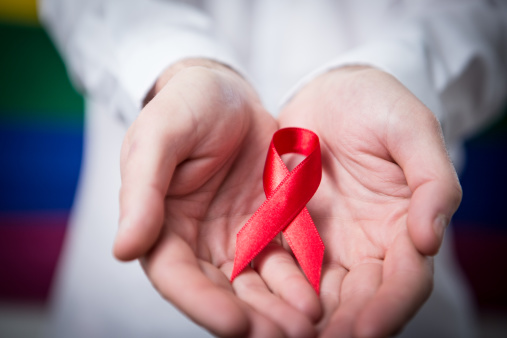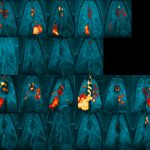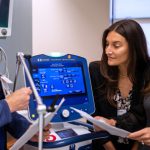The Pitt Men’s Study hosted its 35th annual World AIDS Day memorial last week to honor those who have lost their lives to HIV/AIDS-related illnesses. Moving from Heinz Chapel for the first time, the event was held at the Shepherd Wellness Community in an effort to emphasize community collaboration.
Along with the Pitt Men’s Study, the event was co-hosted by QBurgh, AIDS Free Pittsburgh, Allies PGH, Central Outreach Wellness Center and the Jewish Healthcare Foundation. This year’s service marked the 35th consecutive celebration and was dedicated to the late Dr. Anthony Silvestre, a long-time co-investigator at the Pitt Men’s Study, a research project at the University of Pittsburgh that has followed thousands of participants for more than three decades to learn about HIV/AIDS.
In March 1984, during the beginning of the HIV/AIDS epidemic, Silvestre came to Pittsburgh to join the Pitt Men’s Study as the director of community programs, eventually becoming a professor at Pitt’s School of Public Health. At the time, the Pitt Men’s Study was one of few federally funded studies looking at HIV/AIDS. Over the course of his 30-year career, Silvestre would recruit thousands of men from the LGBTQIA+ community to participate in the study and play a crucial part in developing a community advisory board that helped reach those most at risk. Silvestre died earlier this year and is remembered fondly by his colleagues and community.
Jessica McGuiness, a community health coordinator for the Pitt Men’s Study, was among the speakers for the evening. She was born with severe hemophilia and shared her story of growing up when the cryoprecipitate given to hemophiliacs was taken from the plasma of blood donors.
She recalled the early 1980s when hematologists started finding their hemophiliac patients showing similar symptoms as what was referred to as “gay cancer” or GRIDS (Gay-Related Immune Deficiency), now known as HIV/AIDS. She informed the audience that most of the hemophiliacs from that era did not survive to see anti-retroviral medications and that included all of the children she played with at the hemophilia center growing up.
“The story of what happened to the families of hemophiliacs during the AIDS outbreak is largely forgotten today,” McGuiness said. “So many people are holding onto unresolved pain, and I hope my story can help some of them find closure. This is why World AIDS Day is so important to me.”
Other speakers of the night included Marc Wagner, Pitt Men’s Study community advisory board co-chair, Dr. Charles Rinaldo, professor of pathology in Pitt’s School of Medicine, representatives from other hosting organizations and local clergy. The Pitt Men’s Glee Club, led by Richard Teaster, provided musical accompaniment throughout the evening. The program came to a close with a candlelight vigil and acknowledgement of the “Circle of Love,” which was adorned with names of loved ones who have lost their lives to HIV/AIDS-related illness.









